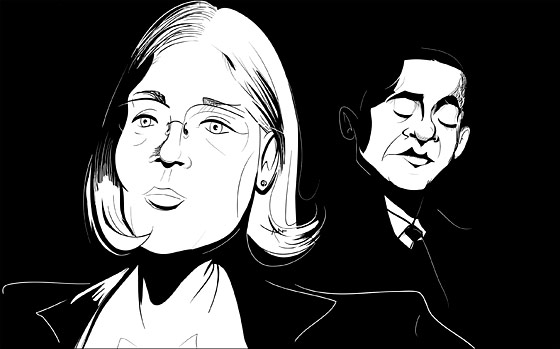
I came up with the idea for this consumer financial-protection agency,” says Elizabeth Warren, President Obama’s controversial new head of the very thing she invented. “It’s mine. I wrote it up when nobody was paying attention. I didn’t have one of the five plans for how we were going to make changes. I had the only plan.”
It’s roll-up-the-sleeves time for the Obama administration. Like any chief executive in an ever-unfolding crisis, Obama is being blamed both for the problem and the fact that the attempted solutions have had the appearance of not working. Which is why Warren, head of the newly created Consumer Financial Protection Bureau, is so important. Though she might seem like the last thing a lurching-to-the-center president might need, Warren is one of the best bets Obama has going to make his ideals seem tangible to Americans.
Of course, the idea of an entity with a mandate to protect consumers seems uncontroversial enough. “This agency is here not because some interest group wanted it or because some lobbyists pushed hard for it,” she says. “It’s here because, despite vigorous opposition, the American people do want someone on their side.” And yet, right after she was given the appointment in September, The Wall Street Journal tore into both Warren and Obama with unhinged ferocity in an editorial titled “Elizabeth III.” Obama’s failing was in doing an end-run around obstructionist Republicans by making her an assistant to the president and special adviser to the secretary of the Treasury, thus avoiding Senate confirmation. Warren was accused of creating a “bureaucratic rogue” agency that will impede the profit-making opportunities of financial institutions by requiring them to stop shafting their customers.
Still, now that the deal is done, even the most cynical of politicians will likely find it difficult to fault her simplifying credit-card terms or reducing mortgage fraud. Warren’s singular vision involves making Wall Street abuses seem like violations of consumer protections. Perhaps she can help the president redefine government as a reasonable policeman of the Street as opposed to a bailout/tax-and-spend machine.
It’s tempting to compare Warren to another plainspoken woman who has been seen as a solution of sorts of late: Sarah Palin. For starters, they seem to share a similar taste in eyewear, as well as folksy argot. (Warren: “Dang gummit, somebody has got to stand up on behalf of middle-class families!”) Warren also won the Betty Crocker Homemaker of Tomorrow award in her senior year of high school, in 1966.
Unlike Palin, of course, the Okie-born Warren became a Harvard law professor. Indeed, Warren and Obama first met wonkily. When Obama, then running for the Senate, first met Warren six years ago, he greeted her by saying, “Predatory lending”—a signal that he was familiar with her work.
Her books include The Two-Income Trap: Why Middle-Class Mothers and Fathers Are Going Broke and her academic papers have titles like “The Increasing Vulnerability of Older Americans: Evidence From the Bankruptcy Court.” Her focus comes from personal experience, including watching foreclosures affect her own family. “I worried about money from the time I was a little kid,” she says.
Like her fellow watchdog Neil Barofsky, the special inspector general overseeing TARP, Warren will surely have a complicated relationship with her boss, Treasury Secretary Tim Geithner. In July 2009, as head of the Congressional Oversight Panel for TARP, she accused his Treasury of accepting as much as $2.1 billion less than was due the American people for bailing out the too-big-to-fail banks. At her appointment, he had his usual look of pained stoicism as he stood on the other side of the president from Warren.
It’s not clear how long Geithner will keep his job, of course. Warren for now is on a roll. “There are so many broken parts to the consumer-credit market that no one thing dominates,” she says. “Families don’t have the luxury of encountering only one especially tricky credit product. They run into literally thousands of them. So this is not an agency that can slay a single dragon, say, ‘Job well done!’ and then relax.”
Have good intel? Send tips to intel@nymag.com.